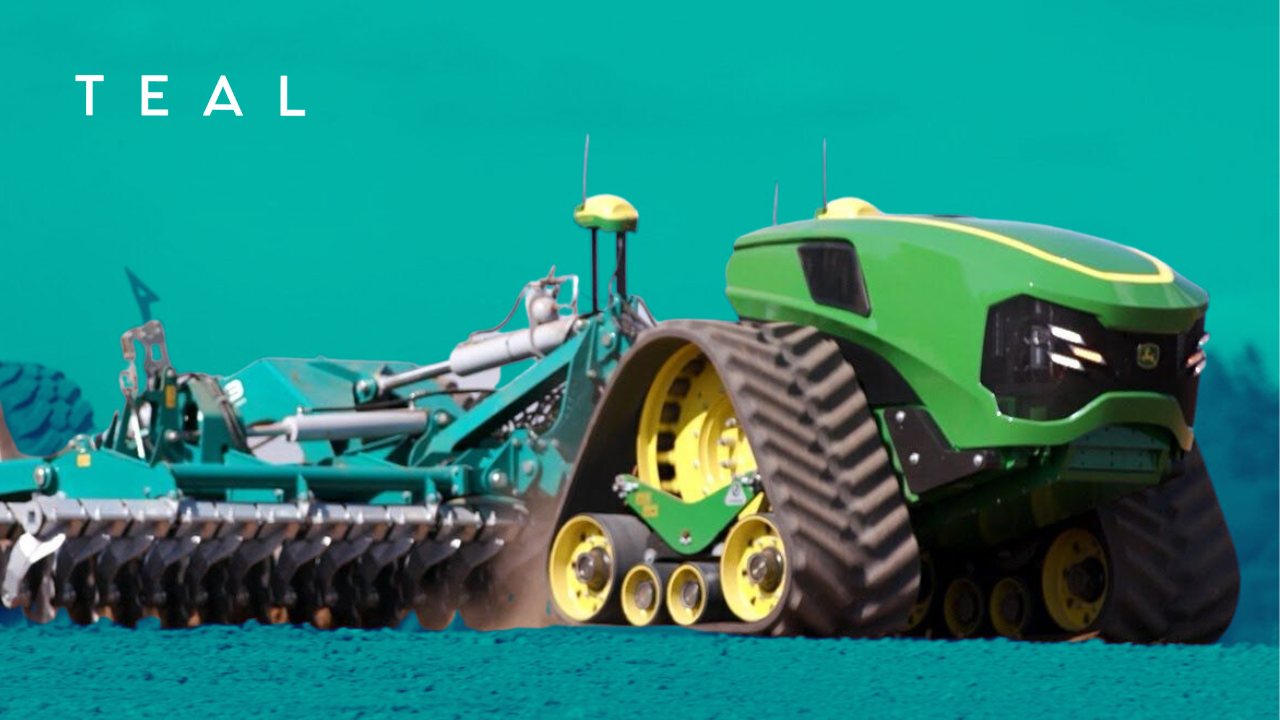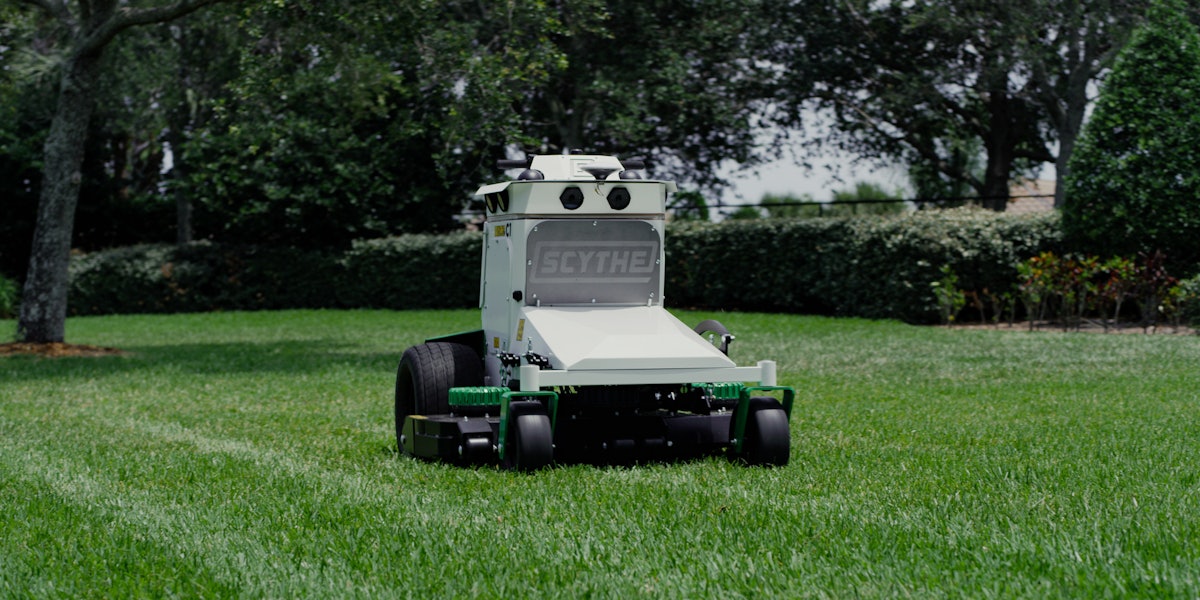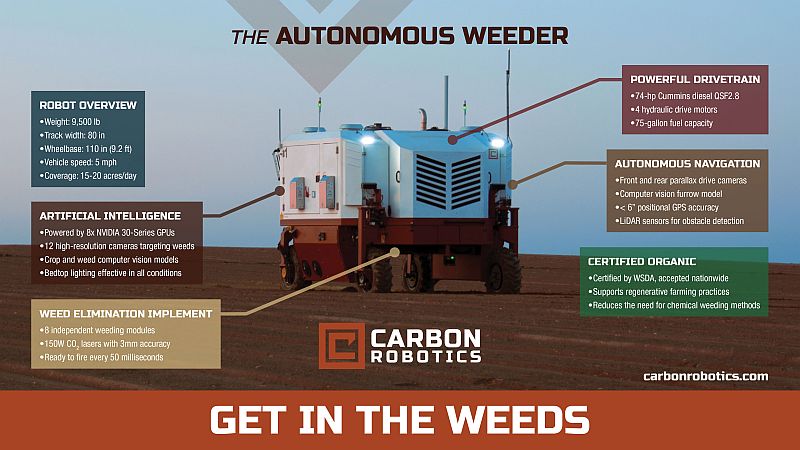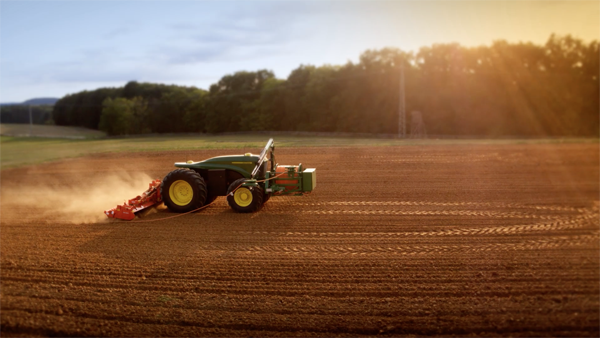The Future of Agriculture: Will Robots Replace Farmers?

The Robot Invasion in Farming: How Machines are Revolutionizing Agriculture
Farming has been a part of human civilization since ancient times. Over the years, farming technology has evolved, and the introduction of machines such as tractors and harvesters has made it easier for farmers to cultivate crops and raise animals. However, with the rapid advancements in technology, many people wonder if robots will take over a farmer’s job in the future. In this blog post, we will discuss the impact of robots in agriculture.
Increased Efficiency with Robot Technology
One of the main advantages of using robots in agriculture is increased efficiency. With the help of robots, farmers can cultivate crops at a faster pace with fewer errors. For example, robots can be programmed to plant seeds in precise locations and at specific depths, while sensors can detect and report on soil quality and eliminate weeds with lasers. This reduces the need for manual labor and allows farmers to focus on other important tasks. Additionally, robots can work 24/7 without the need for breaks or rest, making them more efficient than human labor.
Lower Labor Costs
As with any industry, labor costs are a significant expense in farming and implementing robot technology can help reduce these expenses. While the initial investment in robots may be costly, their long-term benefits make them a worthwhile investment for farmers. With the help of robots, farmers can plant, cultivate, and harvest crops without the need for manual labor. This can help reduce the overall cost of production, ultimately leading to more profitability.
Robots Can Address Labor Shortages
If there is a shortage of laborers causing problems for farmers, robots can help to fill the gap. Robots and automated machinery are ideal for high labor-intensive tasks that would require workers to work long hours in the fields. As a result, robots can work in rough conditions, without getting exhausted or at risk of getting injured. This will enable farmers to save money and provide a consistent and reliable source of labor.
Robots That Are Making An Impact
From automated harvesting to precision planting, robots are revolutionizing the way farmers grow crops and the yield they generate. Robot engineers have developed amazing technology for farming automation that would have been unthinkable a few years ago. Let’s explore some examples of companies disrupting the industry with their innovative farming machines.
Scythe Robotics:

Scythe Robotics provides the commercial landscaping industry with powerful commercial-grade, all-electric autonomous equipment solutions for maintaining outdoor environments. The company’s first commercial mower, Scythe M.52, has the most advanced autonomy technology on the market, bringing greater precision, sustainability and scale. Scythe Robotics is headquartered in Boulder County,
Colorado. Find out more at https://scytherobotics.com
Carbon Robotics:

Carbon Robotics produces revolutionary AI-powered robotic systems that precisely identify, weed and thin specialty vegetable crops using lasers with millimeter accuracy, while observing the conditions of the crop and soil in a field for later analysis. Its technology reduces the use of herbicides in traditional farming, eliminates unnecessary tilling for regenerative farming, and in many cases eliminates the need for weeding crews of up to 75 people per field per LaserWeeder unit. Carbon Robotics has sophisticated AI/deep learning and over 8 million labeled crop and weed image objects that, in the weeding application, delineate between individual weeds and crops in order to eliminate only the weeds, all in real time, at tractor speeds of 1-2 mph (2-4 acres per hour). These robots are also able to thin crops to maximize crop health and yields per acre. Carbon Robotics
Naio Technologies:

Naio Technologies is a French-based agricultural robotics company that produces autonomous weeding robots. Its flagship robot is called “Oz,” and it can navigate crop rows, identify weeds, and apply precision mechanical weeding through its various tools. The Oz robot can also automatically adjust the speed of its movement, making it ideal for different crop fields. It saves farmers time and decreases the need for herbicides, leading to a more sustainable way of producing crops. Naio’s robots are known for their efficiency and can weed up to 3 hectares in a day. www.naio-technologies.com
Stout Agtech:

The Stout Smart Cultivator is a software-defined, tractor drawn implement that uses machine vision and artificial intelligence to cultivate and weed fields using mechanical blades. We built the Smart Cultivator because everything else kept breaking down in the field and removing crops as well as weeds. Each Smart Cultivator clears 1-2 acres per hour depending on soil conditions using mechanical blades controlled by our proprietary AI model that recognizes each weed and each plant individually with 99.99% accuracy. No crop kills.
John Deere and Caterpillar

Connected self-driving tractors are essentially large, robotic vehicles that are designed to plant and harvest crops autonomously. They are equipped with sensors, GPS systems, and advanced software that allow them to navigate fields, track weather patterns, and predict yield potential. Leading manufacturers of these tractors include John Deere and Caterpillar, who have invested heavily in the development of these cutting-edge machines.
The Role of Farmers in the Future
There is no doubt that robots are becoming more prevalent in agriculture. However, they cannot replace farmers completely. Robot technology continues to develop and improve, meaning it can assist with more tasks, which we’ve seen farmers implement for better efficiency and profitability in the long run. Ultimately, humans are essential to agricultural practices, and their involvement remains paramount.
Farmers play a crucial role in agriculture, and their work encompasses a whole range of tasks beyond what robots can currently do. By combining robotics with human expertise, farmers can make better decisions, increasing yield, and reducing the overall cost of production. For instance, farmers can analyze data from robotic sensors, monitoring soil quality and making real-time decisions based on the data. This puts human judgment and experience at the center. Thus, robots can complement farmers, but they cannot completely replace them.
With robots playing an increasingly important role in farming, ensuring they are connected at all times is crucial.
If connectivity is implemented successfully in agriculture, the industry could tack on $500 billion in additional value to the global gross domestic product by 2030, according to McKinsey.
One technology that offers farmers flexibility and affordability when it comes to cellular connectivity for robots is eSIM. With eSIM technology, connecting any robot onto any network is as easy as clicking a button. With more network operator agreements than any other connectivity provider, Teal’s GSMA certified eSIM platform makes switching between networks simple. This ensures that your robots and devices are always connected and always working. Find out if eSIM is right for you. Contact a Teal expert today!
Recent Posts
TEAL’s Network Orchestration Service (NOS) is Changing Cellular Connectivity
Teal Communications Staff2025-07-15T19:59:45+00:00
How TEAL’s eSIM Technology is Shaping the Future of Drone AAM Policy Under FAA Part 108
Teal Communications Staff2025-07-08T16:48:15+00:00
Empowering Freedom, Independence, and Control Through TEAL’s Network Orchestration Service (NOS)
Teal Communications Staff2025-07-03T16:40:46+00:00




